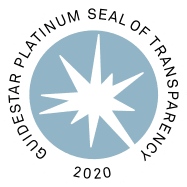Ukraine has now been a sovereign and independent nation for over 30 years. As a sovereign and independent nation, Ukraine’s foreign policy is not a matter to be determined by Russia, the United States, or the European Union — it is a matter for Ukrainians.
Russian leader Vladimir Putin clearly disagrees. As Ukraine pursues a policy of closer alignment with the West, its relations with Russia have deteriorated to the point of being on the brink of a full-scale war.
Right now, over 100,000 Russian troops are deployed along the Ukrainian border, ready for a potential conflict that would benefit nobody and cause only loss and devastation.
For years, Ukraine has lived under constant threat from the Russian regime
Ukraine’s increasingly pro-Western stance has already resulted in parts of its territory being occupied by Russian-backed separatists and embroiled in brutal conflict since 2014. At present, a clear majority of Ukrainians support joining both the European Union and NATO.
In 1991, as part of the dissolution of the Soviet Union, an overwhelming majority of Ukrainians (92.3 percent, with a majority in every region) voted in favor of becoming an independent nation. While many Ukrainians, particularly in the east of the country, have long thought of Russia as a friend and favored close ties, there has never been much appetite for unification with Russia.
Russia’s illegal annexation of Crimea and establishment of puppet regimes in the Donbas region in 2014 alienated many of those Ukrainians who had favored close ties with Russia. This initial attack on Ukraine’s sovereignty occurred at a time of political turmoil, in the wake of the Euromaidan protests and Revolution of Dignity.
The 2014 revolution culminated in the resignation of then-president Viktor Yanukovych, who months earlier had declined to sign an association agreement with the European Union at the last minute, going back on promises he had made to the Ukrainian public. Subsequently, Ukraine’s interim government signed the agreement, much to Putin’s annoyance.
Years of conflict in Ukraine’s eastern border regions have pushed Ukrainians further towards NATO membership in light of the belligerent regime on their doorstep. However, due to a multitude of roadblocks, Ukrainian accession to either NATO or the EU is not likely for the foreseeable future.
Ukraine has faced many challenges on its journey towards liberalization, yet it has made significantly more progress than Russia in terms of democracy and human rights. Unlike in Ukraine, meaningful political opposition is not tolerated in Vladimir Putin’s Russia, which is also a perpetrator of widespread human rights abuses, including in occupied regions of Ukraine.
Putin’s sense of entitlement to a “sphere of influence” in Eastern Europe
At present, Russia is an authoritarian regime led by a calculating bully intent on fabricating crises in neighboring countries. This is done in order to gain the “sphere of influence” in former Soviet states that Putin feels Russia should be entitled to.
Needless to say, this concept is outdated and completely disregards the wishes and aspirations of people in independent nations who must be free to pursue closer relations with whichever countries or alliances they choose.
The ex-communist countries of Eastern Europe are sovereign nations which ultimately owe nothing to Vladimir Putin, whose diplomatic entanglements are used as convenient distractions from serious issues within Russia.
In the case of the crisis in Ukraine, Putin argues that the prospect of eventual Ukrainian NATO membership poses a threat so severe to Russia’s national security that he is prepared to take military action if he doesn’t get his way.
What does Putin want? For a start, he wants assurances from Western leaders that Ukraine will be permanently barred from joining NATO, even though Ukraine would have absolutely no interest in attacking Russia. Another objective would be for an agreement preventing future NATO expansion into his “sphere of influence.”
Again, this shows Putin’s contempt for Ukraine’s sovereignty and that of neighboring countries, who must be free to make their own decisions regarding their foreign policy and alliances.
One way or another, there is no legitimate reason why a neighboring country seeking to join an alliance with others could possibly constitute a remotely valid pretext to invade that country.
The Russian leader has also been known to refer to the southeastern regions of Ukraine as “Novorossiya,” meaning “New Russia,” a loaded term dating back to the days of the Russian Empire. This strongly implies an ambition to see at least this part of Ukraine, strategically located by the Black Sea, annexed to Russia in the long term.
Addressing Putin’s propaganda
Observers must be wary of Putin’s elaborate propaganda, that being the idea that Western leaders promised not to allow former Eastern Bloc countries to join NATO.
The mere fact of Ukraine’s existence as a sovereign, independent country is enough to irritate Vladimir Putin. The Russian leader has made it known that he does not believe that Ukraine should even be a separate nation to Russia. He has suggested in the past that Ukraine should join Russia in some sort of union state, similar to his intended plans with Belarus.
Furthermore, Putin has repeatedly attempted to delegitimize Ukrainian political figures unsympathetic to his regime by baselessly smearing them as fascists.
Opposition to warmongers in the West should not mean echoing the talking points of authoritarian leaders. One of Putin’s propaganda points often repeated internationally is the idea that NATO has betrayed his trust by aggressively expanding eastwards in defiance of past agreements not to bring onboard former Eastern Bloc countries.
However, no treaty has ever been signed to that effect, either with Russia or the Soviet Union. The closest thing to an agreement was an informal conversation in 1990, between Soviet leader Mikhail Gorbachev and U.S. Secretary of State James Baker, with the latter allegedly stating that he did not expect NATO to expand beyond East Germany.
Regardless of one’s thoughts on NATO, the decision whether or not to pursue membership in the alliance is a matter for each individual country and has nothing to do with Vladimir Putin. Indeed, his hostility towards neighboring countries is the key factor in pushing them to seek membership in the first place.
Ukrainians have the right to defend themselves against any attempt at invasion
While one certainly hopes that the current tensions can be resolved through diplomatic means, should Putin decide to infringe on Ukraine’s sovereignty, the Ukrainians have every right to defend themselves against invasion by an expansionist authoritarian regime. Ukraine is better equipped to defend itself than it was in 2014. It has a larger and more advanced military, with many civilians also volunteering and training to do whatever they can to help repel any invading force.
The Ukrainians can also strengthen their position by being provided with additional supplies by friendly countries who support the country’s sovereignty. For instance, Estonia, Latvia, and Lithuania, all NATO and EU members and former Soviet republics, have pledged to offer material assistance to Ukraine.
However, in a controversial move, the German government blocked Estonia from sending German-made weapons to the Ukrainians. While the reason given was a fear of making negotiations more difficult, it is also worth noting Germany’s reliance on Russian gas and unwillingness to risk compromising the planned Nord Stream 2 pipeline. The Baltic nations have since sent American-made weapons to aid in Ukraine’s efforts to prepare for what would be a worst case scenario.
Significant escalation of the conflict in Ukraine would have devastating consequences for all involved. Any further attack against Ukraine by Putin and Russia would set a dangerous precedent in international relations, and war would inevitably result in a tragic loss of life on both sides. Finding a peaceful resolution that respects Ukrainian sovereignty is in everyone’s best interests, both in Ukraine and Russia.
To read Students For Liberty’s statement on the Ukraine-Russia border crisis, be sure to click on the button below.
This piece solely expresses the opinion of the author and not necessarily the organization as a whole. Students For Liberty is committed to facilitating a broad dialogue for liberty, representing a variety of opinions. If you’re a student interested in presenting your perspective on this blog, send your piece to [email protected], and mention SFL Blog in the email subject line for your chance to be published and be seen!

















